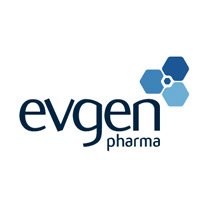Evgen Pharma (LON:EVG), a clinical stage drug development company focused on the treatment of cancer and neurological conditions, this morning announced that the results of mechanistic studies into SFX-01, the Company’s lead compound, in breast cancer are being presented this afternoon in a poster at the UK Interdisciplinary Breast Cancer Symposium 2018, Manchester.
The studies used patient samples and patient-derived tumour models to show that SFX-01 targets cancer stem cells (“CSC”) in early and metastatic breast cancers and has the potential to overcome resistance to endocrine treatment in oestrogen-receptor positive (“ER+”) breast cancers.
The studies also showed that SFX-01 potently suppressed the elevated levels of phospho-STAT3 (“STAT3”) seen after endocrine treatment. Investigations are continuing into the role of STAT3 signalling effectors as part of this mechanism of action.
The poster, entitled SFX-01 targets STAT3 signalling to inhibit stem-like cells in breast cancer patient-derived xenograft tumours, concludes that the study data “demonstrate the potential of SFX-01 for clinically meaningful improvements to endocrine therapy in ER+ breast cancer by reversing CSC-mediated resistance”.
The lead authors of the poster are Dr Bruno Simões and Dr Rob Clarke. Dr Clarke, who led the studies, is a Reader in Breast Biology and is the Director of the Manchester Breast Cancer Now Research Unit at the University of Manchester.
A copy of the poster will be made available later today on Evgen Pharma’s website, www.evgen.com.
Steve Franklin, CEO of Evgen Pharma, said: “We are very excited by this data, which provides further evidence that SFX-01’s mechanism of action is to target cancer stem cells to reverse the resistance to hormone treatment seen in ER+ breast cancer. I would like to thank Dr Clarke and his team for their on-going work on SFX-01. The team’s work highlights the effect of SFX-01 on STAT3, which is well known to play a key role in tumour renewal and metastases.
“This mechanistic work supports our on-going Phase II clinical trial of SFX-01 in metastatic breast cancer patients. We look forward to reporting an interim update from the Phase II trial in the first half of this calendar year followed by the final read-out around the year-end.”

